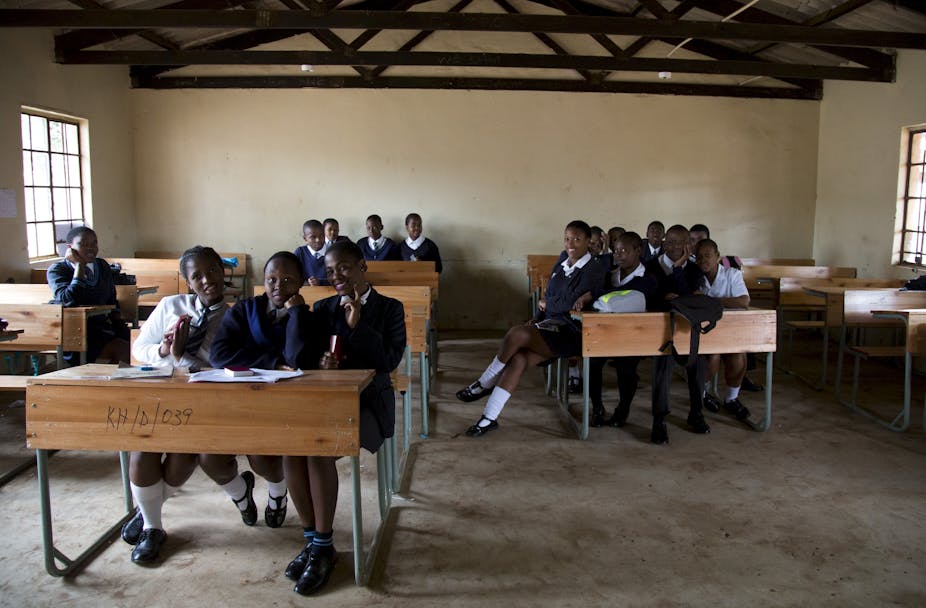The budget for 2016 announced by South Africa’s Finance Minister Pravin Gordhan has failed to settle the markets or dispel uncertainty about the country’s economic future. Jabulani Sikhakhane, deputy editor of The Conversation Africa, asked Krige Siebrits to explain why.
Are the measures announced by the finance adequate to deal with South Africa’s most pressing economic problems, such as removing stumbling blocks to greater investment by the private sector and higher levels of job creation?
Krige Siebrits: No. But the expectations created in the run-up to the budget might not have been realistic.
The budget represents an impressive plan for accelerating the process of fiscal consolidation and for allaying concerns about fiscal sustainability. As is usually the case, it also outlines many other aspects of the government’s economic policy agenda. These include various initiatives and measures aimed at boosting investment and creating jobs.
In addition, the need for closer co-operation with business, labour and civil society on economic policy issues is a recurrent theme in the budget. But Gordhan did not announce the kind of game-changers many had hoped for. The question should be asked, though: which feasible game-changers were at his disposal in the current economic and political environment?
What is missing from the package?
Krige Siebrits: The factors that hamper investment, job creation and economic growth in South Africa are well known. It is widely agreed, for example, that the National Development Plan represents a fine diagnosis of South Africa’s economic ills.
Critical problems, such as the perilous state of the education system and the poor functioning of labour markets, are structural. Calls for radical reform ignore the reality that solving these problems involves the building of consensus. This will be time consuming and will involve institutional change and cooperation among government agencies and other parties.
Yet even if one allows for the complexity of these problems, it is unacceptable that so little progress has been made since 1994. Government should put more effort into developing concrete strategies for dealing with the factors preventing the removal of the critical constraints on economic growth.
Has South Africa done enough to avoid a downgrade?
Krige Siebrits: Gordhan presented a sound plan for reducing the budget deficit and stabilising the public debt ratio. But the fiscal situation is only one of several factors taken into account by the ratings agencies.
The budget has not fundamentally improved the economy’s growth prospects. To the extent that growth and structural reforms aimed at raising the growth potential of the economy are decisive concerns for the ratings agencies, the risk of a downgrade seems undiminished.
But it would be unfair to criticise Gordhan for not doing more. The responsibility for economic policy is divided among several ministers. The complex structure of the ministerial cluster responsible for economic issues is one of the factors that contribute to uncertainty about economic policy.
A more concerted effort is needed from all economic policymakers to avert the threat of a downgrade.
Budgeting is always about balancing competing demands on limited resources. The most pressing demands in South Africa can broadly be grouped into higher economic growth and equity, including redress for the effects of apartheid on the majority. How well did Gordhan strike such a balance? If not, in which direction – growth or equity – is the budget tilted?
Krige Siebrits: Economists increasingly emphasise the complementarities between the objectives of growth and equity. Growth creates resources to fund redistributive programs. Well-chosen redistributive programs promote growth by contributing to social stability and by enabling more people to participate in economic activity.
One of the most important achievements since 1994 has been to maintain fiscal discipline, which is a prerequisite for sustainable economic growth. This discipline was maintained while effecting large-scale redistribution through the budget.
Recent studies find that fiscal policy has a larger redistributive effect in South Africa than in a sample of other middle-income countries. These included Brazil, Chile, Colombia, Indonesia, Mexico and Peru.
The 2016 budget continues this balanced approach to growth and equity. It is particularly heartening that the intention is to reduce the budget deficit without compromising the social wage or public infrastructure investment.
Since 1994 South Africa has announced numerous new policies to increase growth and improve government’s performance. It’s always fallen short on implementation. Does this budget signal any step change? Is there anything that shows a greater sense of urgency?
Krige Siebrits: There has been a sense of urgency in the government’s pronouncements on economic policy matters so far this year. The budget maintained this momentum. Gordhan’s speech and the budget documents released by National Treasury contain many references to the importance of implementation and to new initiatives to improve it.
This focus, however, is not new. So one is left wondering whether the 2016/17 financial year will bring more progress than previous years. This is particularly important on matters such as the governance of state-owned enterprises, service delivery in many municipalities, retirement reform and clarification of the financial implications of national health insurance.
In these and other areas, a step change in government’s approach to implementation would require more concreteness. This could be in the form of commitments to specific outcomes and clear progress reports in subsequent budgets.

